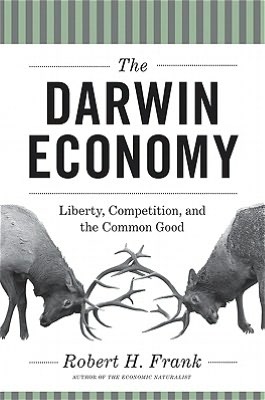Robert Frank, in his book The Darwin Economy: Liberty, Competition, and the Common Good, suggests that we should have a strongly progressive consumption tax. I confess that I don't understand how that would work. For example, think of a family that buys a second house at the beach planning to rent it out when they could, but to live in it when a renter could not be found; what portion of the cost of the house should be considered investment to produce future income and what should be considered consumption? Would you consider the total price of the house to be divided between investment and consumption at the time of the purchase, or merely the down payment with the interest paid on the loan so divided when the interest was paid? If the latter, would the actual experience with rental be used to divide investment from consumption or would the declared original plan? If the latter, how would the government decide whether the declared plan was reasonable or merely a figment declared to avoid taxes?
Frank makes what seems to me to be a good point. He compares the tendency of increasing conspicuous consumption to increasing conspicuous consumption to the evolution of huge antlers in elk. The antlers have an advantage for the individual in sexual competition to obtain large harems of females (and thus to pass on the genes for huge antlers), but the species winds up with all its males more vulnerable to predators since the huge antlers slow them down but don't help in fighting off predators. Rich people, who are getting ever richer, are spending more and more on consumption -- bigger houses, more expensive cars, more houses, hugely expensive parties, etc. In doing so, they invest less. While China is investing 50 percent of GDP with household saving accounting for 35 percent of GDP, the United States is investing only 10 percent of GDP, half of which comes from household saving.
Frank suggests that conspicuous consumption is fueled by the desire to live in a slightly more lavish lifestyle than ones peers. A rich man wants a house slightly more lavish than his neighbors or business colleagues, a car slightly more luxurious. But since those people also want slightly more lavish and luxurious lifestyles, they too will upscale. Moreover, the just less affluent will have consumption desires based on their comparison with their just more affluent acquaintances and thus they too will upscale, and so it goes.
Like me, Frank was a Peace Corps volunteer long ago who lived in two tiny rooms, neither embarrassed by their size nor by the limited income that made that accommodation necessary; like me, Frank recalls that time as among the happiest in his life. It is not the size nor the luxury of one's home that makes one happy. Indeed, the huge manor houses of the British aristocracy often made them quite unhappy.
Of course, it one is so poor that one is hungry, unable to afford medical attention even when it is needed, unable to properly educate one's children, with no hope of escaping that poverty, the condition affects one's happiness. However, as Frank points out, there are decreasing returns in happiness to increasing wealth and income and to increasing consumption. When the real estate bubble was at its biggest and new houses were much more than 2000 square feet in size on the average, Americans were no happier than they were a generation earlier when houses were some 1600 square feet in size. Conspicuous consumption does not buy happiness. Indeed the increasing inequality of wealth and income in our society seems clearly to reduce our happiness, if not by making most of us feel deprived by comparison with the more affluent, then by the reduction of our future potential by the reduction of investment.
Frank also points out that with more income, people tend to consume more, including the very rich and with higher prices, people consume less. The first seems obvious. Frank points out that where real estate costs are outlandish, such as in Manhattan, even the rich live in smaller places while where they are low, for example Wyoming, people of comparable wealth own more property and larger houses.
One step to reduce competitive consumption would be to have more progressive taxation. For the rich to pay lower percentage of tax on their income makes no sense. Lets at least end the Bush tax cuts for the very rich.
Another step that I think would be feasible would be to limit tax exemptions for mortgage interest paid. We may want to encourage home ownership but lets not encourage people to spend outlandishly on residences. Lets say that the maximum tax exempt interest on personal residences would be $200,000 or $300,000.
We might also impose progressive excise taxes on luxury goods. Tax a $50,000 car much more than a $20,000 car, a $200,000 car much more than either. Tax the collector cars, art and other collectibles that sell at outrageous prices heavily. (Except of course for those purchased by public museums for public edification, which would also be cheaper without so much the plutocratic competition).
I doubt that such policies can be enacted now with our Congress so subservient to money interests, but they would be good for the country.

No comments:
Post a Comment